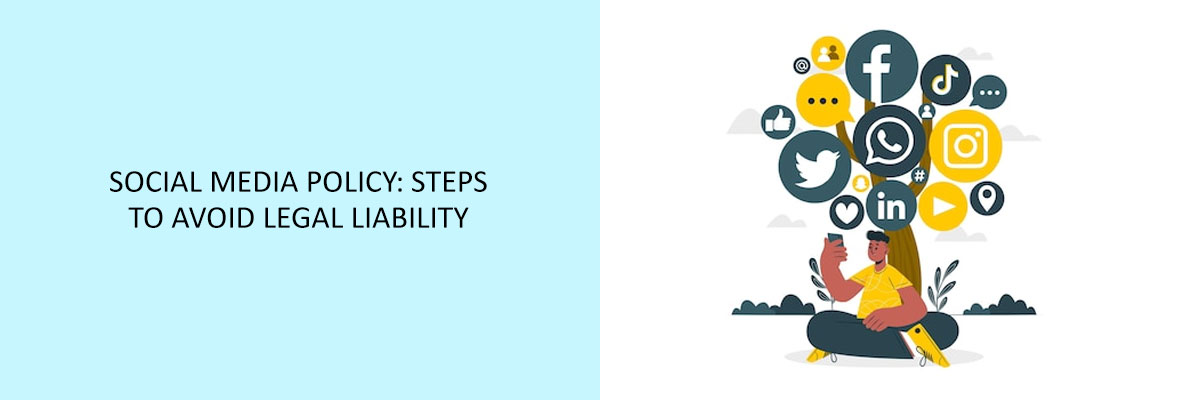Social media is not a fad. It is a necessary part of modern business, and companies put a high value on their ability to connect with customers. Social media sites are a marketing marvel, and companies use them to broadcast information, produce content, and engage with customers. The use of social media and other new media tools can be a positive outlet for some—but for others, it can quickly spiral into an online rage.
Social media platforms are a great way to connect with customers and promote your business. However, if you have not prepared a social media policy, you may be subject to legal liability.
Here are a few steps to avoid legal liabilities.
Determine the Type of Policy You Need
There are a few different types of social media policies that businesses may need to create in order to avoid potential legal liabilities. A company may need a policy for its own social media accounts, such as Facebook or Twitter, or it may have policies for its employees’ use of social media platforms.
In either case, the policy should include provisions about:
- Who is responsible for managing the company’s social media accounts?
- How and when will updates be made to the accounts?
- What type of information should be shared on the company’s social media pages?
- What consequences will employees face if they violate social media policy?
Identify the Parties involved in Your Business Relationship
In order to comply with social media policy, your business must have a clear understanding of who is responsible for managing the company’s social media accounts. This includes who is responsible for making updates to the accounts, what type of information should be shared, and what consequences employees will face if they violate social media policy.
Establish Guidelines for Use of the Platforms
The social media policy should establish guidelines for the use of the platforms. This will help avoid legal liability. Guidelines should include prohibitions on unlawful content, hate speech, and cyberbullying. The policy should also state that users are responsible for their own content and must comply with all applicable laws.
Educate Employees on the Policy
Your social media policy should be distributed to employees. This will help ensure that everyone is aware of the policy and understands their obligations in relation to the use of social media platforms. The policy should also include provisions about updating information, abiding by laws, and consequences for breaking the rules.
Final Words
Your business should have a clear understanding of who is responsible for managing the company’s social media accounts. This includes who is responsible for making updates to the accounts, what type of information should be shared, and what consequences employees will face if they violate social media policy. Guidelines should be established for the use of the platforms, including prohibitions on unlawful content, hate speech, and cyberbullying. Employees must be educated on the policy and understand their obligations in relation to social media use.
By taking the time to create a social media policy, you can avoid legal liability and protect your business. Attend the Compliance Prime webinar to learn more about social media policy to avoid legal liability.


